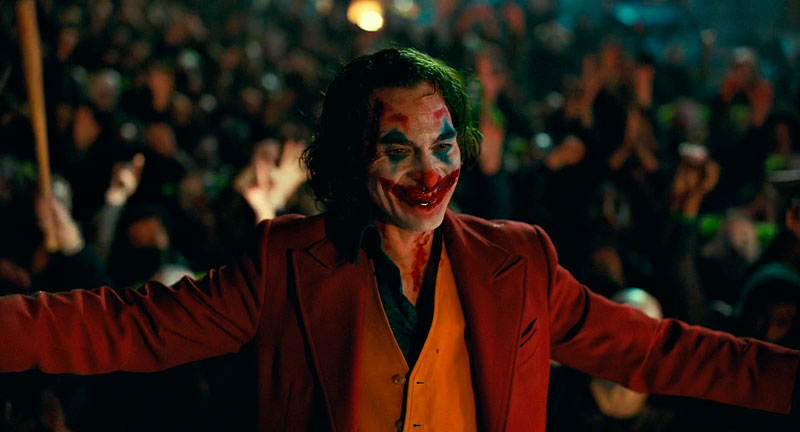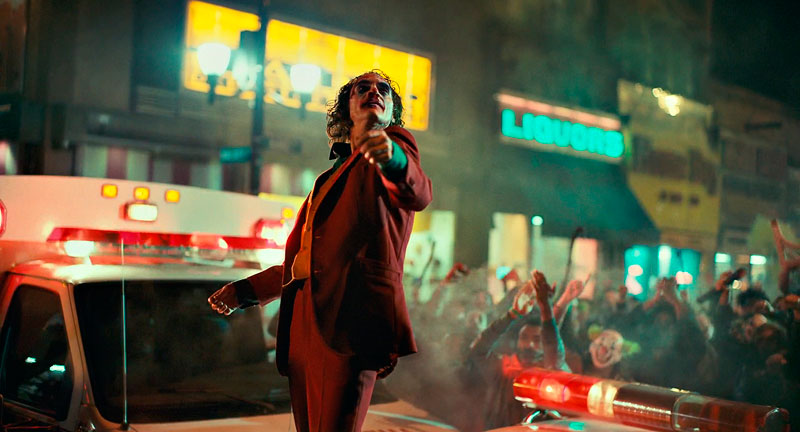Joker presents an interesting, if over-worked character study of the transformation of Thought possible at the bottom of abject, alienated human existence. It's political potential, however, is intentionally displaced and it ends-up contributing to reproducing the problem it describes.xxxxxxxxxxxxxxxxxxxxxxxxxxxxxxxxxxxxxxxxxxxxxxxxxxxxxxxxxxxxxxxxxxxxxxxxxxxxxxxxxxxxxxxxxxxxxxxxxxxxxxxxxxxxxxxxxxxxxxxxxxxxxxxxxxxxxxxxxxxxxxxxxxxxxxxxxxxxxxxxxxxxxxxxxxxxxxxxxxxxxxxxxxxxxxxxxxxxxxxxxxxxxxxxxxxxxxxxxxxxxxxxxxxxxxxxxxxxxxxxxxxxxxxxxxxxxxxxxxxxxxxxxxxxxxxxxxxxxxxxxxxxxxxxxxxxxxxxxxxx
Recently, the Zodiac killer's final message from 1969 was decrypted1.
I HOPE YOU ARE HAVING LOTS OF FUN IN TRYING TO CATCH ME THAT WASNT ME ON THE TV SHOW WHICH BRINGS UP A POINT ABOUT ME I AM NOT AFRAID OF THE GAS CHAMBER BECAUSE IT WILL SEND ME TO PARADICE ALL THE SOONER BECAUSE I NOW HAVE ENOUGH SLAVES TO WORK FOR ME WHERE EVERYONE ELSE HAS NOTHING WHEN THEY REACH PARADICE SO THEY ARE AFRAID OF DEATH I AM NOT AFRAID BECAUSE I KNOW THAT MY NEW LIFE IS LIFE WILL BE AN EASY ONE IN PARADICE DEATH
Interestingly, Joker makes a similar argument. Having been repudiated by life repeatedly from birth, the protagonist of the film(e.g., the Joker), eventually realizes that his life is not the tragedy he's always been oppressed by; but rather, that by a simple switch of thought, all of his failures--of life to live-up to his expectations/of him to live-up to that of life's—become transformed into a liberating form of comedy. At every moment that life lets you down, rather than looking at it as a personal failure or the tragedy of individual destiny, it becomes instead the comedy of the totally predictable incommensurability of life to one and one to life. Comedy thus becomes, as the displaced belief in the afterlife for the Zodiac, rather a secularized version of liberation from life's tragedy: no belief in the afterlife is necessary, only a belief in the redemptive value of comedy, of laughing, even at the most awful, miserable, and abject conditions and situations that one can encounter in life.
There are two interesting but flawed methods the film uses to make this point, both related to the Marvel comic-book-hero nature of the film. The first is the way the film uses the spectacle that is the bread-and-butter of this type of movie, and the second has to do with the Marvel character itself.
Firstly, in this film, rather than the spectacle of explosion and big action emblematic of the superhero genre movie, small, subtle movements and moments are elevated to all-screen consuming spectacle to fulfill the same purpose. Simultaneously, the slow-motion balletic dances in dirty bathroom mirrors have the purpose of creating the impression of philosophical principle through the way in which the ritualism of gesture reflects the vastness of being rendered palpable by the spectacular.
Secondly, is the archetype of the clown in the Joker character itself. Having one's face made-up in clown-makeup itself is enough to evoke the absurdity of the human condition and of the compulsion inherent within it to perform one's positivity irrespective of what life throws at them. In this way, the mask becomes both an explicit symbol and an indication of the contradiction in life, and also a container for the actualization of its full potential. As the Joker liberates himself from the stunted position of the clown for others to mock and laugh at to the position of becoming life-as-clown, he actualizes the potential of human-being to itself become the comedy life presents to one in the confines of polite society.
However, these two aspects also undermine the film and indicate its most significant problem. Elevating moments to spectacle in order to express the philosophical significance of the Joker's transformation works, but using it repeatedly, over and over to the point of reducing the film to music video doesn't. Likewise, the clown-face might be a convenient point of entry for accessing this profound choice at the basis of human existence, but using it pervasively to cast emergent societal dysfunction as a unity of collective behavior has the effect of making it all seem childish and ridiculous: an entire mob of people wearing clown-masks might seem like a clever way of making the alliance with the protagonist explicit, but it is also exposes the limits of the symbol as the film's meaning spills out of the character study and into superficial genre cliché.
In the end, the film is a corporate product for mass consumption. It probes the limits of human endurance not to elevate them to political significance, but to turn them into profit. Rather than ending the film with the Joker standing on the hood of the car surrounded by constructed crowds of cheering, masked clowns elevating his singular protest to organizing social-political significance, the film chooses instead to staple an alternative ending onto the film. Depicting the Joker in the mental asylum has the effect of neutering the political significance of the film while displacing it back into the Marvel universe as simple origin story2.

In a time when the economy is everyday more unequal and the possibilities for social mobility everyday further foreclosed, its fitting to the logic of the oligarchic class today that they censor their own film with an alternate ending. Joker doesn't expresses the fundamental rot at the core of our broken society and the legitimacy of social movements organizing around the alternative mode of human existence the film portrays; rather, the film becomes about a single individual who needs psychiatric attention. Instead of broad social-political potential arising from the film, the individualized story forecloses this, self-neuters the film and displaces it back into the predictable profiteering wheelhouse of the Marvel franchise that has colonized so much of what's left of cinema today.
And, looking back at Joker, one can see positive traces of this throughout the film. Elegiac, balletic scenes are intricately choreographed and express more a desire for Academy recognition than precisely elaborating a complex, subtle character study. Crowds of cheering clowns reflect not the chaotic threat of a liberated underclass, but the subsumption of real-life people to minimum or unpaid wages for the sake of promoting their own celebrity and expressing their fandom for a leading actor's performance in real-time. And a scene that appears improvised and reflective of an actor using a filming-situation to explore emergent human experience3, on careful inspection reveals an intricate choreography of action belied by movement not precisely timed to the protagonist4.
In a time when the American oligarchic class has abandoned working people, where both political parties have been corrupted to serve corporate interests, and where the full police and military suppressive power has been brought to bear on silencing popular movements on both the left and right, this film is testament to precisely what is broken in our society5. Meaning cannot continue to be subsumed within the economic logic of the oligarchic class. It will always be stripped of its most radical potential and re-inscribed within the logic of the boardroom funding its production. And so while Joker might bring broad cultural and societal transformations into popular consciousness through global networks of cinematic representation, they also disingenuously strip them of their real significance. And in so doing they contribute to reproducing precisely what's depicted within their film: the displacement and withholding of authentic human liberation from the forces and structures of oppression.
Footnotes
Misspelling's are the Zodiac's own: https://www.sfchronicle.com/crime/article/Zodiac-340-cypher-cracked-by-code-expert-51-years-15794943.php ↩
Which makes the accolades bestowed onto this film by the Academy doubly disappointing. On the one hand, the film does not deserve them, Once Upon a Time...in Hollywood is without question the best film of 2019 and of the past several decades; on the other hand, such effusive praise becomes, in the context of the critique presented here, a form of pathetic plaintiff to an industry every year further debased with mindless superhero movies. It's almost as if the Academy is heaping on praise as carrot to elicit more films with meaning. Such a politics, although pervasive, particularly on the left, have no hope of effectuating the desired outcome. ↩
Referring back to the previous article on Danish filmmaker Thomas Vinterberg's Another Round, exploring emergent human behavior and experience refers to an actor's, director's and the entire assemblage implicated in the production of a film to maintain within their work always a willingness to allow the process of making a film to exert its own demands that can never be entirely predicted before filming begins. This is a concept of film production as experimental, in that making a film is an experiment that allows for the probing of human experience not otherwise attainable. ↩
e.g., the context conspicuously precedes that of the protagonist in certain moments, for instance the clown act in the hospital. ↩
See Glenn Greenwald's articles on his substack here and here. ↩
